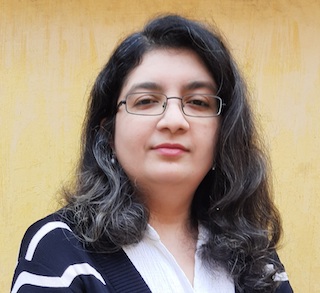
Implementation of Environmental Physiotherapy in Undergraduate Curriculum at The Neotia University, West Bengal, India
Incorporation in the curriculum
The Department of Physiotherapy at the Neotia University, West Bengal, India offers a Bachelor of Physiotherapy as a four and half year course which includes 8 Semesters and 6 – month compulsory internship. The stream of Environmental Physiotherapy has been incorporated in phases throughout the 4-year curriculum.
In the 2nd semester the students are taught a 2-credit course on Environmental Sciences where they study in detail about the Scope and multidisciplinary nature of environmental studies. This has been done to introduce them to the basics of environment related topics so that they are ready to understand the scope of physiotherapy practice in case of environment related disorders.
Further ahead in the 6th semester, Diseases due to environmental factors are included in the course General Medicine & Paediatrics. This will give the students comprehensive knowledge of the clinical conditions which can arise due to environmental pollution, poisoning and climate changes.
Finally in the 7th and 8th semester, the students will study about management of various conditions using physiotherapeutic techniques. In these Semesters I hope to give additional weightage to physiotherapy practices that can make the profession more environment “conscious”. Here I hope the students should be able to acquire the ability to not only treat conditions that arise due to environmental factors, but to incorporate environmental factors into their treatment.
Something new and something different
The topics included in the 6th, 7th and 8th semesters are not very novel to the physiotherapy educators. The curriculum of Environmental Health on the other hand is designed in such a way that it covers topics that have never been a part of the Physiotherapy curriculum. The course is has got two parts, one covers the basic topics related to environmental sciences and the last part has environmental physiotherapy which aims to make the students aware of how these basic Environmental science topics can be explored by physiotherapy professionals.
Since environmental science was never a part of the physiotherapy curriculum in India, we have welcomed the guidance of Dr. Chakraborty who is an Assistant Professor in the School of Science & Technology and has extensive knowledge in this field. As the course is still evolving, there isn’t any fixed method of teaching that has been adopted. The environmental physiotherapy section becomes an interactive session with an expert or it becomes a project to encourage the students to develop their thoughts on the topic.
What the course is all about
The syllabus for the Environmental Health course is similar to what most people learn in school. The course is planned in a way where the students initially learn what is environment, the ecosystems and its types, the need for public awareness regarding environmental health and the scope of environmental studies. Once the basic foundation is covered, we move on to the environmental pollution and the social problems that can arise due to it. This section is extensively deals with the environmental pollution, its types and effects on health and society.
The final section that has been included in this course is Environmental Physiotherapy. This is where the faculty of physiotherapy introduces concept of sustainability, One Health, need of Physiotherapy in disorders due to environmental pollution and the use of Nature-based interventions for a more sustainable Physiotherapy practice.
The evaluation is similar to any other course where students appear for closed-book tests as well as prepare assignments. This gives us an opportunity to understand their cognitive ability as well as their psychomotor understanding of the subject. This we feel will encourage them to find their own ways of incorporating concepts of Environmental Physiotherapy.
Practice-based learning and future plans
As the university is located in a rural area, the students will be encouraged to do small projects to understand how the changing climate and pollution in the area has affected the health of the local population. Another idea for implementation in the future is to encourage the students to discover options for using the open spaces and other environmental factors in their clinical training.

Srijani Banerjee
Faculty (Visiting) in Department of Physiotherapy, The Neotia University (India) & Dance Movement Therapy practitioner
I started out as a clinical physiotherapy practitioner and worked as a Consultant Physiotherapist in a Cancer Research Institute for quite a few years before shifting to academics. I have been an educator for a little more than 5 years and I train undergraduate students. My main area of interest is understanding the psychosocial aspects of physiotherapy care and looking beyond the realms of traditional physiotherapy.

Rajashree Kar
Teaching Associate
Dr Rajashree Kar has 2 years of teaching and a year of industry experience. She did her Post-Graduation in physiotherapy with a specialization in orthopaedics.
Some reflections
Environmental physiotherapy has become an integral part of the physiotherapy curriculum at The Neotia University. The students had the opportunity to interact with and get a better understanding of the Environmental Physiotherapy Agenda from Associate Prof Filip Maric. We have one batch of students who have not studied Environmental Science and their understanding as well as interest in the idea of environmental physiotherapy is markedly less than those students who have been following the revised course module. The addition of the above modules was an attempt to give this concept proper recognition into the ever-changing physiotherapy curriculum.
Get in touch
🇬🇧 We would love to hear from you and continue the conversation about our planetary health and environmental sciences teaching initiative. If you have any feedback, questions or ideas that you would like to share with us, please contact Srijani Banerjee via email or use the comment form below.

0 Comments